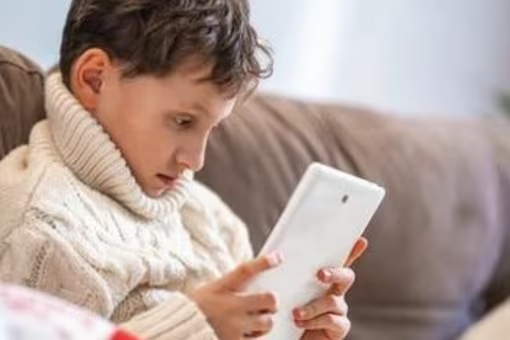Digital addiction is a form of behavioural addiction that refers to excessive use of devices such as smartphones, tablets, computers and the internet. This can lead to negative consequences on an individual’s physical and mental health, as well as their relationships and daily functioning.
Symptoms of digital addiction can include feeling anxious or irritable when not using digital devices, neglecting responsibilities and difficulty sleeping or concentrating due to excessive use. Treatment for digital addiction may include therapy, counselling and setting limits on device usage.
Undeniably, the internet is a highly entertaining and informative medium but at the same time, it can lead to addiction. It can have a devastating impact on your child’s physical and mental health, as well as social and emotional well-being.
The internet, like drug and alcohol addiction, allows children and adolescents to escape painful feelings and troubling situations. They forego required hours of sleep to spend online and isolate themselves from family and friends. They can be with anyone in an online chat room or can compete in thrilling and challenging games against players from all over the world. These very characteristics make it an appealing escape for many children.
As a parent, you must take strict steps to help your children develop healthy habits and strike a balance with technology. Here are six guidelines for parents to help their children find balance and detoxify their children from digital addiction:
1. Engage your child in physical activities
Instead of sitting and playing video games with their kids, parents should encourage their kids to participate in sports and outdoor activities. They could work out and interact with others in a real-world setting, instead of enjoying a virtual world together.
2. Create screen-free zones
Set aside a few rooms or areas in your house as screen-free zones such as the bedroom or dining room. This can encourage your kids to put down their devices and participate in other activities, and also keep them away from a virtual world.
3. Encourage your child with a balance of activities
Parents can help their children find balance and prevent them from becoming overly dependent on screens by encouraging them to participate in a variety of activities, both online and offline. This might include pastimes, sports and other physical pursuits that get them physically moving and allow them to participate in actual real-life experiences.
4. Establish home rules
Establishing some ground rules such as prohibiting cell phone use in the dining area is crucial. They will become more aware of their dietary choices and portion sizes as a result. Many kids unknowingly overeat while using gadgets frequently, which contributes to obesity and other health issues. Fixing an hour to sit, chat, play and have fun with your kids while they engage in various activities is always a good idea.
5. Setting up time limits for gadgets
Children should be encouraged to establish a schedule when it comes to using their gadgets. When they can use their devices for a set period, much like how they follow a study schedule, could do wonders to detox your child from digital addiction.
6. Model healthy behaviour
Parents need to set an example for the behaviour they want their children to exhibit. This entails establishing boundaries for your screen time and figuring out how not to be glued to your screens. You can assist your children in understanding the value of forming healthy habits and striking a balance with technology by teaching them about the dangers of digital addiction.


